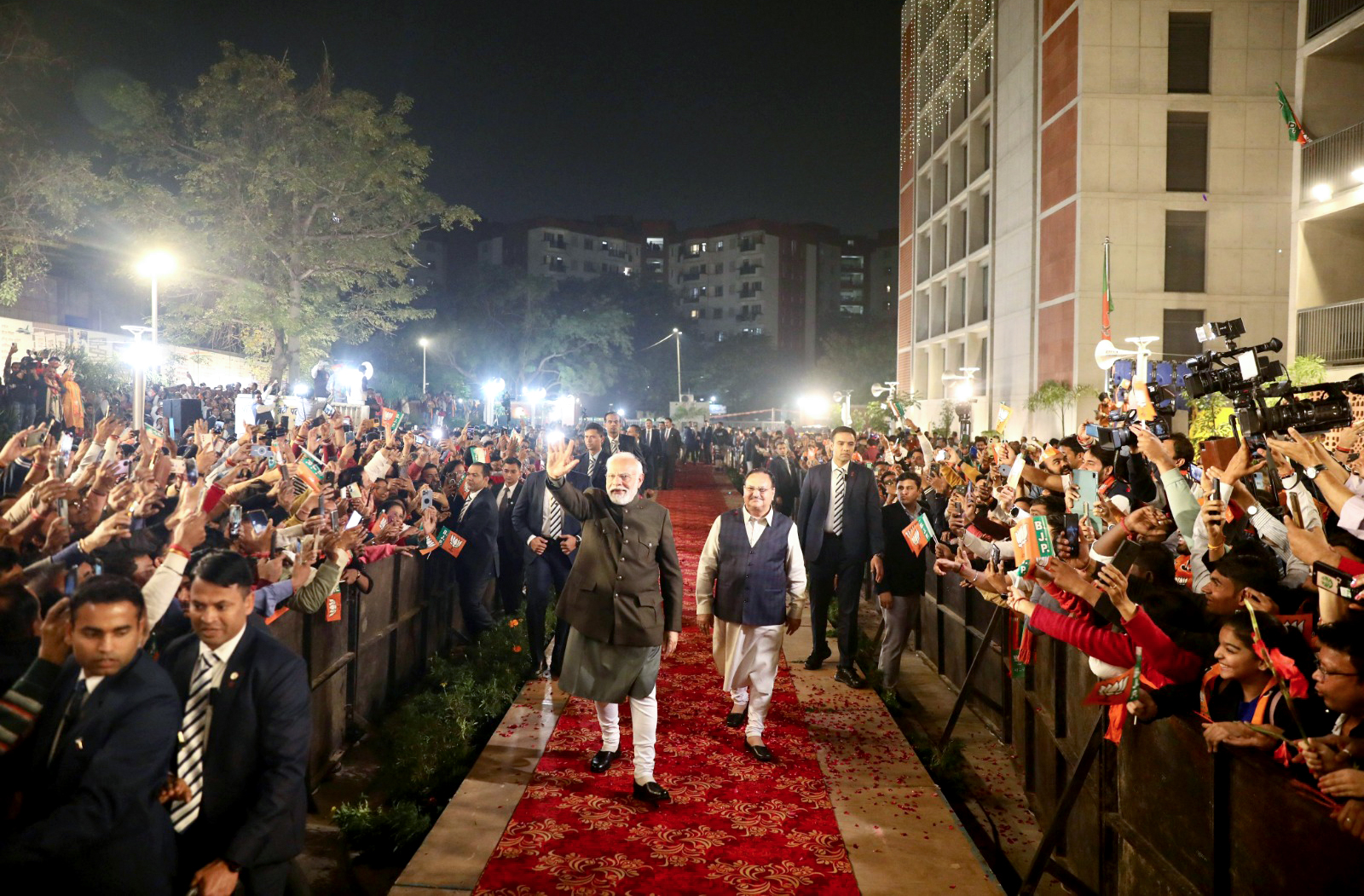The election results of five Indian states have been announced, revealing a significant victory for the Bhartiya Janata Party in Madhya Pradesh, a surprising gain in Chhattisgarh, and an impressive comeback in Rajasthan. Meanwhile, the Congress gained new life in the southern part of India by securing victory in Karnataka.
Let’s begin by asking: how should we interpret the outcomes of these state assembly elections? These results convey three major surprises. Firstly, in Hindi belt states, the BJP continues to wield a substantial influence on the public psyche, understanding the strategy, diction, and popular idioms to engage with the North Indian Hindi Patti mentality. Secondly, the trust in Narendra Modi holds more sway in Hindi Patti states than any other leader or party. His beneficiary support initiatives proved more effective than those of Bhupesh Vaghel and Ashok Gehlot.
Thirdly, political parties may not rely on a single structure of leaders and cadres; like the BJP, they may evolve multiple support structures, including organizational support from the Anushangik Sngathan of the RSS and a new beneficiary cadre structure. Fourthly, in these three states, the public exhibited trust in national political parties, whether the BJP or Congress, suggesting a concentration of national politics around these two parties in the future.
Fifthly, the BJP is consistently strengthening its grassroots impact on the tribal population, crucial in states like Madhya Pradesh, Chhattisgarh, and Rajasthan. Support from ST communities may have played a significant role in the BJP’s victories, with tribal-centric policies enhancing the party’s influence among tribal communities.
The BJP’s politics of tribal gaurav and various developmental schemes, such as sewa karya (schools, hospitals, and the revival of traditional resources), have cultivated grassroots support among tribal communities. The party skillfully integrates icons of communities into current
electoral politics, as demonstrated by the recent erection of a monumental statue of Saint Ravidas in Sagar, Madhya Pradesh, a revered figure among SC communities nationwide. This initiative, a politically creative move by Shivraj Singh Chouhan, aligns with PM Narendra Modi’s earlier foundation-laying ceremony for the Swami Ravidas temple and statue.
Delving into the reasons behind these election results prompts another question: why did they happen? In states like Madhya Pradesh, Rajasthan, and Chhattisgarh, the BJP implemented well-planned strategies to gather, recollect, and reorganize its influences. The state exhibited a ‘no one face’ notion but multiple faces, invoking aspirations among many state leaders to become future leaders of the party.
Furthermore, as mentioned earlier, PM Narendra Modi invested personally in these elections, taking significant risks for his own image. His bold political strategy and heightened trust value among the common people contributed to the impressive victory for the party. Despite the Congress heavily relying on its version of beneficiary politics and caste census-produced reservation politics, it failed to enhance its mobilizational impact.
The long-term impact on Indian politics is evident. These election results will strengthen the BJP’s position for the upcoming 2024 parliamentary election, enhancing the impact of Modi’s image. The Congress, weakened in opposition politics, faces challenges in uniting opposition forces against the BJP amid various constraints and pressures. The electoral strategy to mobilize voters around OBC caste identity may lose its impact, compelling the Congress to devise new electoral issues for the 2024 parliamentary election.
While these election results may not directly impact the 2024 parliamentary elections, they will have transformative effects on the political psyche of voters and cadres. The 2024 parliamentary election is anticipated to revolve around the performance and image of Modi, rather than localized issues dominating state assembly elections.
During interactions in states like Madhya Pradesh and Chhattisgarh, many youths and women who voted for the Congress in this election expressed that while they voted for the Congress in these state elections, they plan to vote for Modi ji in the next parliamentary election. Let’s observe how Indian democratic politics will be reshaped in the coming months.







